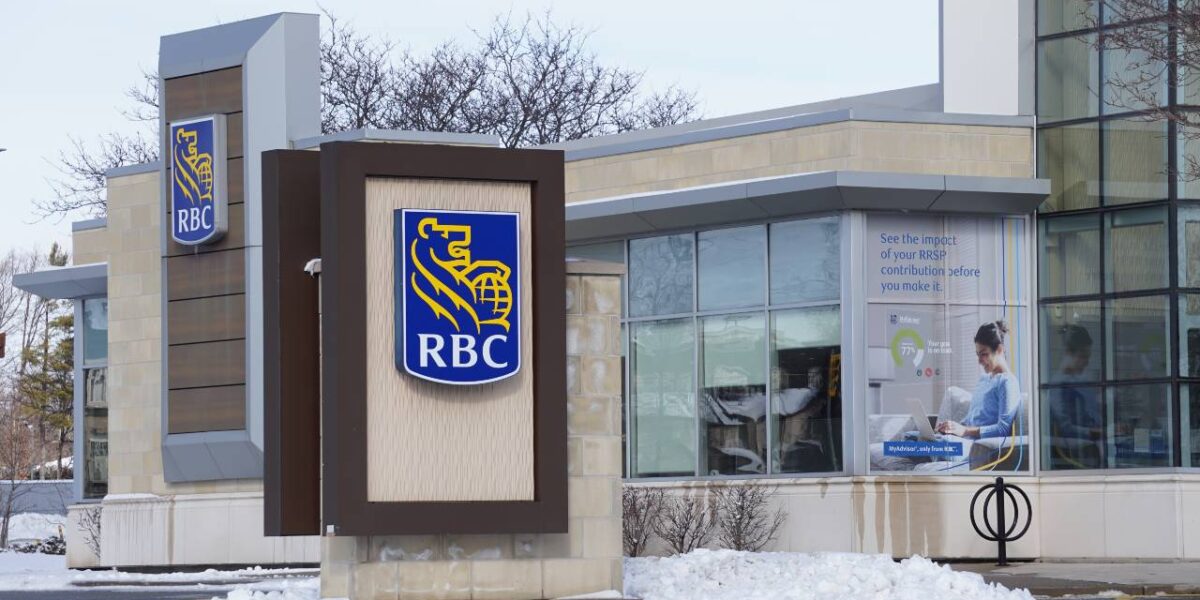Earlier this month, the Royal Bank of Canada held their annual general meeting. In the process, the bank blocked many Black and Indigenous leaders from attending, forcing them to participate from a secondary room where their voices would never be heard.
The event sparked backlash after RBC refused entry to Indigenous leaders from Canada First Nations and Black community leaders from the Gulf Coast.
The advocates sought to attend the AGM in opposition to RBC’s many oil and gas projects across North America. Calling for the bank to divest from fossil fuel initiatives, the leaders raised awareness about the destructive industries polluting the planet, which disproportionately impacts Black and Indigenous communities.
Instead, officials segregated the racialized stakeholders from shareholders.
A press release from Stand.Earth called RBC’s threats of arrests and physical violence towards the Indigenous delegation “further confirmation of the bank’s commitment to corporate colonialism.”
After all, RBC is the primary financier of the Coastal GasLink pipeline. So it was no surprise the Wet’suwet’en Hereditary leadership were shut out of the AGM.
Despite efforts by shareholders to hold RBC accountable, the bank has issued a recommendation to reject any proposals around climate targets and Indigenous sovereignty.
That includes a shareholder resolution that would “push RBC to operationalize free, prior and informed consent into its corporate policies and activities.” Another resolution sought to end the financing of fossil fuel expansion.
Even New York City Comptroller Brad Lander called for RBC to set absolute greenhouse gas reduction targets.
“All of this highlights that RBC has no interest in reconciliation or the rights of Indigenous peoples,” the release reads. “They are more focused on their bottom line at the expense of human rights.”
Calls grow for RBC to stop greenwashing
The AGM took place one week after RCMP raided a Gidimt’en village site, arresting five land and water protectors who were mostly Indigenous women.
Shaylee Holland, a Wet’suwet’en youth, called RBC’s decision to fund fossil fuel companies at record rates “hypocritical and morally wrong.”
“RBC talks about youth empowerment, but in reality RBC is robbing youth of our future,” Holland said in a news release. “RBC claims it helps kids, yet it is actively financing the destruction of our future through fossil fuel financing and devastation of my land.”
While the AGM took place, hundreds of people protested outside, with drumming, music and calls to action from Indigenous delegates across North America. The demonstration urged RBC to stop greenwashing, respect Indigenous sovereignty, and put an end to fossil fuel financing.
“If RBC took our rights seriously, there would not be raids happening to clear people from their own land for a project that they finance just days before holding their AGM,” said Grand Chief Stewart Phillip with the Union of British Columbia Indian Chiefs. “This disregard for the rights of Indigenous peoples is unacceptable and must end.”
RBC the world’s number one fossil fuel financier: report
In the days after RBC’s AGM, a Banking on Climate Chaos report found that the bank was the world’s number-one fossil fuel financier in 2022, outranking Scotiabank, TD, BMO and CIBC.
According to the report, RBC handed out $42.1 billion USD to fossil fuel companies in the last fiscal year alone. Not only is the amount up year-to-year — the bank has financed nearly $254 billion since the Paris Climate Agreement in 2016.
Overall, Canadian banks gave nearly $138 billion USD to fossil fuel companies in 2022, marking the largest amount since before the Agreement was signed.
Meanwhile, the Competition Bureau of Canada is currently investigating RBC for “allegedly misleading consumers with climate-related advertising while continuing to increase financing for coal, oil and gas.”
Overall, RBC helps finance seven liquid natural gas export terminals in Texas and Louisana, along with over a dozen other oil and gas projects in the region.
The scope of work has contributed to the deterioration of the Gulf Coast, resulting in chronic toxic air and water pollution, severe land loss, declining wildlife populations, increased severity and damage from hurricanes, and constant risks to public health and safety.
The effects of environmental racism
Roishetta Ozane, a Gulf Coast environmental justice advocate from Louisiana, attended the RBC meeting. Ozane says she was discriminated against and told she was not allowed to enter the main venue, noting in a statement that “it was obvious…that RBC buys into racism.”
“Upon looking into the main room I noticed that only white people were allowed in this room – and the only Black person and Indigenous delegation were sent to an empty ‘overflow’ room,” Ozane said.
Ozane, who traveled thousands of miles to Canada, says she’s no stranger to racism and segregation at home in the southern U.S.
“As a Black woman, I’m passionate about environmental justice because I recognize the health disparities that disproportionately affect communities of color,” she said, adding that racialized communities often lack the same human rights when it comes to clean air, land and water.
To Ozane, environmental racism represents decades of unfair and unjust exposure to hazardous waste, resource extraction, and land-use in and around low-income racialized communities.
“RBC only cares about money as they continue to fund fossil fuel projects along the Gulf Coast located in predominantly BIPOC communities, and then suppress our voices when we speak out,” Ozane said.
Wet’suwet’en Hereditary Chief Na’Moks agrees with Ozane.
Na’Moks holds CEO Dave McKay “personally responsible for the abuse Indigenous peoples received from RBC,” noting that Canada’s biggest bank “has no interest in reconciliation or our human rights.”
In a statement, Na’Moks noted that while the province and federal government allege they are committing “civil disobedience,” he argues Indigenous activists are being “civilly obedient to our traditional laws of protecting clean waters, lands and air.”
“We do not own the land, we are simply caretakers,” Na’Moks said. “As much as RBC, Canada, and British Columbia try to extinguish our rights and title, we will remain the authority on our land. We do this for the betterment of all.”



